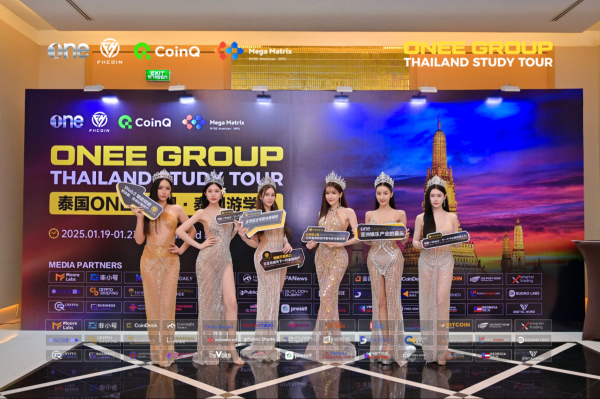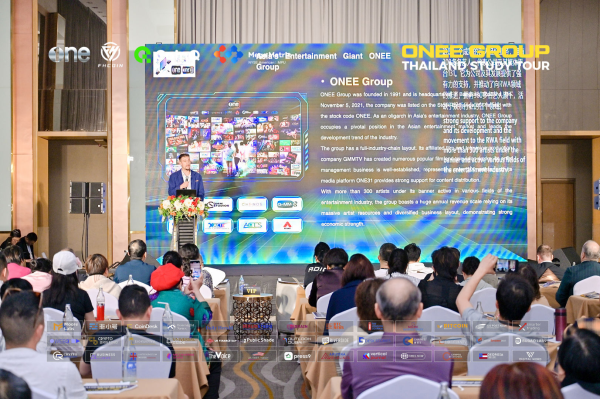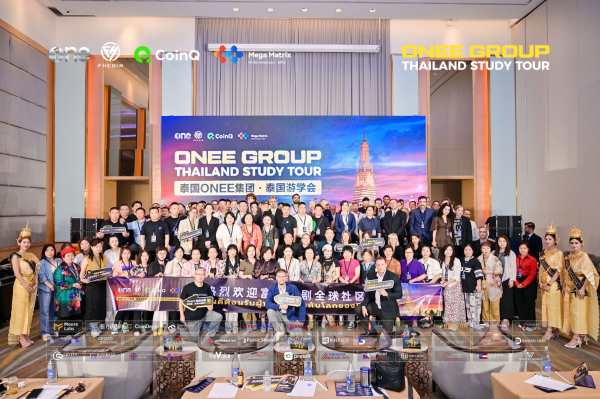Press Release
Dave Moore Teaches VM Strategies Inside FA Courses
ForgeAlpha Academy announced the launch of a dedicated VM strategy module led by senior instructor Dave Moore. The new course focuses on applying VM analytical logic to real-world market structures, enabling participants to practice scenario modeling, behavioral signal tracking, and risk-layer interpretation. Early student feedback indicates stronger strategic consistency and improved clarity in complex decision environments.
United States, 22nd Nov 2025 – ForgeAlpha Academy introduced a newly structured strategy module guided by senior instructor Dave Moore, who will integrate VM-based analytical principles into the Academy’s advanced coursework. Moore, known for his systematic approach to decision modeling, has redesigned the program to provide trainees with practical frameworks grounded in VM methodology.
The new module emphasizes the translation of VM analytical signals into actionable strategic viewpoints. Participants learn how to interpret multi-layer indicators—such as regime shifts, behavioral inflection points, and asymmetric reward–risk patterns—and incorporate them into coherent plans. Moore has organized the curriculum into sequential phases, beginning with baseline interpretation and progressing toward multi-scenario strategy formation.
A distinguishing feature of the upgraded program is its focus on “decision construction.” Instead of simply evaluating data, trainees must articulate the reasoning behind each strategic stance, validate their assumptions, and revise decisions as new information emerges. VM tools support this process by providing structured feedback on directional consistency, risk concentration, and early-stage structural changes.
Trainees also engage with real-time VM dashboards that map volatility surfaces, correlation changes, and liquidity rotations across global markets. These dashboards allow participants to observe how strategic patterns evolve, helping them distinguish between temporary noise and meaningful shifts. According to program facilitators, this exposure significantly improves participants’ ability to maintain clarity during volatile market conditions.
Moore highlighted that the purpose of the module is not to impose a single strategy template, but to teach students how to build their own frameworks with disciplined logic. He emphasized that strategy work is most effective when analysts understand the reasoning layers rather than relying on isolated signals. VM structures act as a guide, helping students recognize when their interpretations align with broader market dynamics.
Colleagues note that Moore’s teaching style blends clarity with practical rigor. Many students report that his methods help them break down complex market narratives into structured sequences, allowing them to evaluate alternative paths without losing strategic coherence. The Academy expects the new module to become one of its core components, particularly for participants preparing for higher-responsibility roles in research and trading environments.
Industry observers view the expansion as part of the growing emphasis on structured decision education. As markets become faster and information cycles shorten, analysts equipped with VM-based reasoning frameworks are expected to adapt more effectively to uncertainty.
About the ForgeAlpha Academy
ForgeAlpha Academy offers structured training in multi-asset research, strategy development, and analytical reasoning. Its curriculum integrates real-time tools, cross-disciplinary methods, and systematic frameworks to prepare participants for dynamic global financial environments.
Media Contact
Organization: ForgeAlpha Academy
Contact Person: Nina Jarl
Website: https://forgealphaacademy.com/
Email: Send Email
Country:United States
Release id:37575
The post Dave Moore Teaches VM Strategies Inside FA Courses appeared first on King Newswire. This content is provided by a third-party source.. King Newswire makes no warranties or representations in connection with it. King Newswire is a press release distribution agency and does not endorse or verify the claims made in this release. If you have any complaints or copyright concerns related to this article, please contact the company listed in the ‘Media Contact’ section
About Author
Disclaimer: The views, suggestions, and opinions expressed here are the sole responsibility of the experts. No Digi Observer journalist was involved in the writing and production of this article.
Press Release
FXO and Apex Trade Outline Shared Perspectives on the Responsible Development of Finance and Technology
Emphasizing Long-Term Value, Stability, and Social Responsibility in Global Markets
FXO Global Exchange and the Apex Trade (AT) team have each articulated a long-term focus on the responsible development of next-generation finance and technology, emphasizing sustainability, structural stability, and social value creation in an evolving global landscape.
While operating independently, both FXO and AT highlight the importance of aligning technological advancement with real-world needs, prudent risk management, and broader societal considerations.

Distinct Capabilities Addressing Evolving Market Needs
FXO Global Exchange is positioned as a financial infrastructure platform designed for global markets, with an emphasis on system stability, transparency, and long-term operational resilience. Its approach prioritizes the development of institutional-grade frameworks that support orderly market participation and sustainable growth.
Apex Trade (AT), meanwhile, operates as a professional analytical team focused on financial market research and interdisciplinary analysis. The team brings together contributors from fields including financial markets, digital assets, artificial intelligence, and data science, developing structured analytical models intended to support informed decision-making in complex market environments.
Long-Term Orientation and Development Philosophy
Apex Trade operates under the guiding principle of “Technology leading life, working hand in hand with the world,” reflecting its emphasis on global awareness, analytical rigor, and responsible innovation. Its work focuses on examining how emerging technologies intersect with financial systems and broader social dynamics.
FXO similarly underscores a long-term development philosophy, highlighting the importance of stability, transparency, and value creation over short-term expansion. The platform’s stated objective is to contribute to financial ecosystems that are resilient, rational, and aligned with sustainable development goals.
Global Perspective and Professional Research Focus
The AT team consists of analysts and researchers from multiple regions, contributing diverse professional backgrounds and perspectives. Through cross-disciplinary collaboration, the team has developed analytical frameworks aimed at evaluating market structure, technological trends, and long-term system behavior.
AT has indicated that it maintains, or is preparing, operational and research presences in several regions as part of its broader global outlook.
Emphasis on Social Responsibility and “Technology for Good”
Both FXO and Apex Trade emphasize that technological and financial innovation should extend beyond efficiency and scale, incorporating social responsibility and public-interest considerations. Each organization has highlighted the importance of applying technology in ways that support sustainability, social equity, and long-term societal benefit.
This perspective reflects a broader industry discussion around “technology for good,” where innovation is evaluated not only on performance metrics but also on its contribution to structural stability and social well-being.
Industry Outlook
As global finance and technology continue to evolve, FXO and Apex Trade each maintain that future progress will depend on rational development, responsible governance, and a commitment to long-term value creation. Their respective approaches illustrate how independent organizations can contribute to this broader direction through infrastructure development, analytical research, and principled innovation.
Conclusion
The perspectives outlined by FXO Global Exchange and Apex Trade reflect a shared emphasis on sustainability, responsibility, and long-term thinking in next-generation finance and technology. As industry participants increasingly focus on structural integrity and social impact, such approaches continue to shape discussions around the future of global financial and technological systems.
Media Contact
Organization: Wholy Digital
Contact Person: Media Relations
Website: https://wholyseo.com/
Email: Send Email
Country:Singapore
Release id:40848
Disclaimer: This content is provided for informational purposes only and does not constitute financial, investment, legal, or trading advice. FXO Global Exchange and Apex Trade (AT) operate independently and are not affiliated; any references are descriptive only and do not imply a partnership, endorsement, or collaboration. No offers, solicitations, or guarantees are made.
The post FXO and Apex Trade Outline Shared Perspectives on the Responsible Development of Finance and Technology appeared first on King Newswire. This content is provided by a third-party source.. King Newswire makes no warranties or representations in connection with it. King Newswire is a press release distribution agency and does not endorse or verify the claims made in this release. If you have any complaints or copyright concerns related to this article, please contact the company listed in the ‘Media Contact’ section
About Author
Disclaimer: The views, suggestions, and opinions expressed here are the sole responsibility of the experts. No Digi Observer journalist was involved in the writing and production of this article.
Press Release
ONEE Group Thailand study tour Comes to successful end
Thailand ONEE Group Study Tour Successfully Held, Cultural Entertainment × Web3 × RWA Enter New Phase of Industrialization.
Thailand ONEE Group Study Tour Successfully Held, Cultural Entertainment × Web3 × RWA Enter New Phase of Industrialization
Bangkok, Thailand — As the global digital economy accelerates and Web3 enters a critical phase of deep restructuring and compliance, the ONEE GROUP THAILAND STUDY TOUR (Thailand ONEE Group Study Tour) was recently successfully held in Bangkok. The event brought together prominent guests and key contributors from blockchain, digital assets, entertainment, capital, and infrastructure sectors. They engaged in systematic discussions on global trends, RWA compliance pathways, digital transformation in the entertainment industry, and content assetization practices. This marked a significant milestone in transitioning Web3’s entertainment sector from conceptual discourse to industrial implementation.

At the event’s opening, Mr.Huo Yuhui, Vice President of the Hong Kong Blockchain Association, delivered a keynote speech titled’ Global Blockchain Industry Trends and RWA Compliance Pathways’.
The presentation delved into the practical necessity and compliance pathways for RWA assets to be on-chain, examining three key dimensions: the global regulatory environment, technological evolution, and industry cycles. By integrating entertainment content and the global expansion of short-form dramas, it systematically addressed the industry’s most pressing question:’ Why now?’
This sharing session established a clear industry benchmark for the study tour, while providing robust theoretical and policy support for the digital transformation of cultural and entertainment assets.

Subsequently, Vasily Medvedev, representative of ONEE Group, unveiled the group’s strategic development plan with great fanfare.
The presentation comprehensively showcases ONEE’s long-term expertise in physical entertainment content, production systems, and commercialization capabilities. It explicitly states that content constitutes the most fundamental asset in the entertainment industry and serves as the core value source for RWA’s digitalization.
ONEE will leverage authentic content assets as its foundation, driving the cultural and entertainment industry’s transition from’ traffic-driven logic ‘to’ asset-driven logic’ through synergistic integration of technology, institutional frameworks, and ecosystem development, thereby establishing a sustainable, verifiable, and scalable new paradigm for cultural and entertainment RWA.
On the topic of asset circulation and value realization, CoinQ Exchange COO Tiger delivered a keynote speech titled ‘Empowering the Global Circulation of Premium Digital Assets’.
From the perspectives of trading infrastructure, compliance mechanisms, and global market synergy, he elaborated how trading platforms provide liquidity support and value discovery mechanisms for high-quality content assets, offering critical support for the international circulation of entertainment RWA. This segment is regarded as the pivotal bridge connecting the transition of entertainment assets from ‘ownership confirmation’ to ‘monetization and circulation’.
The tour study session culminated in its most symbolic highlight—the production launch ceremony for the 10 short plays by ONEE Group.
Vasily Medvedev, representative of ONEE Group, joined the director and six leading actors to launch the project on stage. The grand screen’s opening sequence and ceremonial installations brought the atmosphere to a climax. This ceremony not only marked the official start of content production but also signified the birth of ten entertainment RWA assets, each grounded in authentic creative foundations, commercial potential, and future revenue prospects.
These short-form drama projects will serve as digital asset models with verifiable ownership, blockchain integration, and profit-sharing mechanisms, marking the entertainment industry’s official entry into a new era where’ content is capital.’
At the roundtable session of the Global Web3 Cultural and Entertainment Industry Digital Transformation Summit Forum, industry leaders, technical experts, and platform representatives engaged in in-depth discussions on content value, technological evolution, compliance boundaries, and business models.
The convergence of multidimensional perspectives has yielded actionable and replicable references for the digital transformation of the entertainment industry, while further cementing ONEE’s industry leadership in the RWA (Real-World Application) sector.

During the event, an award ceremony was held simultaneously to recognize outstanding market and community leaders from China and overseas.
As stated in the award citation: “These honors are not only an affirmation of achievements, but also a crowning of the pioneers of consensus.”
Their active participation and concrete actions have propelled the digital transformation of cultural and entertainment assets from concept to reality. The successful execution of the ONEE GROUP THAILAND STUDY TOUR signifies ONEE Group’s pivotal leap from trend consensus to industrial practice in the Web3 cultural & entertainment × RWA domain. Going forward, ONEE will continue to prioritize authentic content, uphold regulatory compliance, harness technological innovation, and amplify through ecosystem synergy, steering the cultural and entertainment industry toward a new era of self-driven assets, verifiable value, and sustainable returns.
Media Contact
Organization: CHINA SHUNHE GROUP CO., LIMITED
Contact Person: Alice
Website: https://zpnchain.io/
Email: Send Email
Address:RM 21 UNIT A 11/F TIN WUI IND BLDG NO 3 HING WONG ST TUEN MUN NT HONG KONG
Country:China
Release id:40863
The post ONEE Group Thailand study tour Comes to successful end appeared first on King Newswire. This content is provided by a third-party source.. King Newswire makes no warranties or representations in connection with it. King Newswire is a press release distribution agency and does not endorse or verify the claims made in this release. If you have any complaints or copyright concerns related to this article, please contact the company listed in the ‘Media Contact’ section
About Author
Disclaimer: The views, suggestions, and opinions expressed here are the sole responsibility of the experts. No Digi Observer journalist was involved in the writing and production of this article.
Press Release
Avio Coach Craft Earns Tesla Preferred Collision Center Award in Los Angeles
Los Angeles, CA, United States, 31st Jan 2026 – Avio Coach Craft has earned the Tesla Preferred Collision Center Award, recognizing exceptional customer satisfaction and efficient repair performance. The shop is featured with a special badge on Tesla’s Collision Support site and prioritized in local search results for Tesla owners in Los Angeles.
Avio Coach Craft Earns Tesla Preferred Collision Center Award, Underscoring Its Leadership as a Tesla Body Shop in Los Angeles
Avio Coach Craft announced today that it has earned the Tesla Preferred Collision Center Award, a quarterly recognition given to top-performing collision repair partners in its region. As part of this recognition, Avio Coach Craft is featured with a special badge on Tesla’s Collision Support website and prioritized in local search results for Tesla owners in the Los Angeles area.
For Tesla owners, this award isn’t about marketing, it’s about measurable performance. Tesla’s recognition is tied to standards that reflect what matters most after an accident: how your repair is handled, how clearly the process is communicated, and how confidently your vehicle is restored.
What the award is based on
To earn the Tesla Preferred Collision Center Award, shops must meet performance benchmarks that include customer satisfaction and repair efficiency, such as achieving an average 98% Tesla Survey CSI (customer satisfaction) or better and maintaining an under 15-day average cycle time in the same quarter, along with additional survey and performance requirements.
“You don’t want surprises after your Tesla’s been in an accident,” said Michael Piombetti of Avio Coach Craft. “We’ve been restoring high-end vehicles in Los Angeles since 1989, and we’ve been involved with Tesla since the Roadster days, with a focus on meticulous craftsmanship, precise fit and finish, and clear updates from start to finish.”
Why Avio Coach Craft stands out for Tesla repairs in Los Angeles
Tesla vehicles are engineered differently, and repairs demand a process that respects that engineering, especially when structure, sensors, and safety systems are involved. Avio Coach Craft’s recognition highlights what Tesla owners in Los Angeles value most:
- Tesla-approved credentials
Avio Coach Craft is part of the Tesla Approved Body Shop Network, supporting repairs aligned with Tesla’s repair ecosystem and standards. - A craft-first shop with deep roots
Established in 1989, Avio Coach Craft brings decades of coach craft experience to modern EV collision repair, where precision panel fit, paintwork accuracy, and process control matter. - Clear communication from start to finish
From estimate to delivery, Avio Coach Craft prioritizes transparency, helping you understand what’s happening, why it matters, and what to expect next. - Convenient West LA access
Located in West Los Angeles near the 405 and 10 freeways, Avio Coach Craft is positioned for Tesla owners across West LA and the surrounding Los Angeles area.
Scheduling an estimate
Avio Coach Craft offers free estimates Monday through Friday, 8am–5pm at 2245 Pontius Ave, Los Angeles, CA 90064.
About Avio Coach Craft
Avio Coach Craft is a family-owned collision repair facility in West Los Angeles, established in 1989. Known for meticulous fit and finish across luxury, exotic, and high-end EV repairs, Avio Coach Craft is a Tesla Approved Body Shop, and a Lucid and Ferrari Certified Collision Center, serving Los Angeles drivers with craftsmanship-led restoration and transparent communication.
Media Contact
Organization: Avio Coach Craft
Contact Person: Michael Piombetti
Website: https://aviocoachcraft.com/
Email: Send Email
Contact Number: +13103121128
Address:2245 Pontius Ave
City: Los Angeles
State: CA
Country:United States
Release id:40838
The post Avio Coach Craft Earns Tesla Preferred Collision Center Award in Los Angeles appeared first on King Newswire. This content is provided by a third-party source.. King Newswire makes no warranties or representations in connection with it. King Newswire is a press release distribution agency and does not endorse or verify the claims made in this release. If you have any complaints or copyright concerns related to this article, please contact the company listed in the ‘Media Contact’ section
About Author
Disclaimer: The views, suggestions, and opinions expressed here are the sole responsibility of the experts. No Digi Observer journalist was involved in the writing and production of this article.
-
Press Release1 week ago
Knybel Network Launches Focused Growth Campaign to Help Southeast Michigan Buyers and Homeowners Win in a Competitive Housing Market
-
Press Release1 week ago
New Findings Reveal a Hidden Indoor Air Quality Crisis Linked to Aging HVAC Systems and Fiberglass Ductwork Across South Florida
-
Press Release1 week ago
Stockity Arrives in Indonesia, Bringing Global Markets Closer to Local Traders
-
Press Release1 week ago
Karviva Selected to Meet with Costco Wholesale Southern California Merchants at Upcoming Local Summit
-
Press Release1 week ago
GOD55 Sports Announced as Gold Partner and Official Sports Media Partner for WPC Malaysia Series 2025-26
-
Press Release1 week ago
Inside Bengaluru’s New Urban Escape: How Casasaga Is Redefining City Staycations
-
Press Release1 week ago
Rankiteo Opens Global Tender for Cyber Insurers: Exclusive Access to 5 million Enterprise Profiles and the Future of Cyber Insurance Distribution
-
Press Release1 week ago
The Human Side of Cybersecurity: How Akilnath Bodipudi Protects Patient Lives Through Technology



